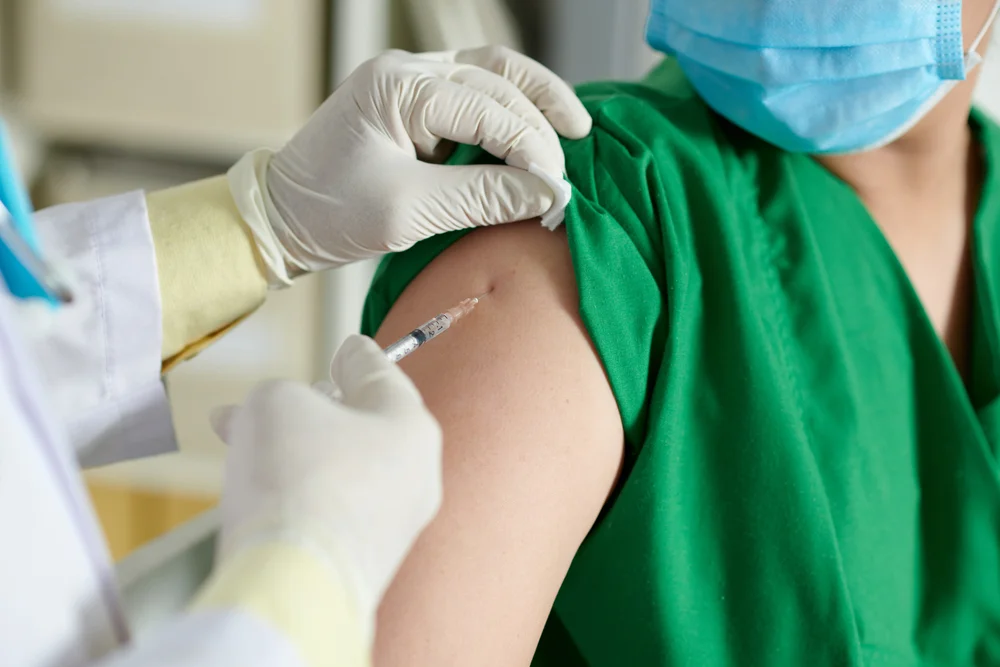
March 23, 2023
Cambodia Vaccination Requirements
About Cambodia
Cambodia is a small country located in Southeast Asia, bordered by Thailand, Vietnam, and Laos. It has a population of over 16 million people and diverse landscapes, featuring everything from rainforest to farmland. Besides, the economy of Cambodia is heavily dependent on agriculture and tourism.
If you want to visit this beautiful country, check all the requirements and safety measures. Below we present the necessary information about correct injections, vaccinations, and general travel advice for a trip to Cambodia.
COVID-19 Restrictions
Health risks regarding COVID-19 are present in Cambodia, and you may be exposed to the coronavirus there. If you seek advice about this topic, check the current information on the government site, as the situation may change quickly.
As for now, The Secretariat of Civil Aviation of the Kingdom of Cambodia stated that the quarantine requirement is lifted for unvaccinated or not fully vaccinated visitors. However, Antigen Rapid Test is still necessary upon arrival.
Yellow Fever Risk
Yellow fever is a viral, severe disease spread by mosquitoes. Symptoms may include fever, chills, headache, body aches, nausea, vomiting, and fatigue. The certificate of yellow fever vaccination is necessary in case of travelers:
- who are 1 year old
- arrived from the country of yellow fever transmission risk
- transit through the country of the disease risk for more than 12 hours.
Besides, citizens of Australia and New Zealand who travel directly from their countries don’t need to have a vaccination certificate.
Risk of Malaria
Malaria is a serious and potentially life-threatening mosquito-borne disease caused by Plasmodium parasites. Common symptoms include fever, chills, headache, body aches, and nausea. It is prevalent in tropical and subtropical regions, especially in countries with poor sanitation and inadequate access to medical facilities.
It is worth knowing that malaria is still a problem in Cambodia. You should prepare an anti-malaria medication recommended by a medical practitioner according to the itinerary, length of stay, and other factors, as there are many types of this disease.
Rabies Vaccinations for Cambodia
Rabies is a deadly virus that affects the central nervous system. It is most commonly spread through the bite of an infected animal, such as a dog, bat, raccoon, fox, or skunk.
Rabies vaccination is advisable but not required. However, it is better to consider it, as well as vaccines for hepatitis, typhoid, and cholera.
Recommended Cambodia Vaccinations
Other vaccinations are also advised if you plan to visit the Cambodian region. There is a high risk of catching the following diseases:
- Chikungunya – a viral infection spread by mosquito bites that can cause fever, joint pain, headaches, muscle pain, and rashes.
- Dengue – a mosquito-borne viral infection that causes severe flu-like symptoms and can lead to potentially deadly complications.
- DTP – a severe bacterial infection that influences the nose and throat.
- Japanese Encephalitis – a viral infection affecting the brain. It is caused by the Japanese encephalitis virus and is spread via mosquito bites.
- MMR – a highly contagious disease caused by three different viruses.
- Schistosomiasis – a water-borne parasitic disease caused by flatworms of the genus Schistosoma. It’s estimated to affect over 200 million people, mostly in tropical and subtropical countries.
- Tuberculosis – an infectious disease that primarily affects the lungs.
- Typhoid fever – a serious, life-threatening illness caused by the bacteria Salmonella typhi.
- Zika virus – a mosquito-borne flavivirus that was first identified in Uganda in 1947. It can cause symptoms such as fever, rash, joint pain, and conjunctivitis (red eyes).
General Advice
You can prevent diseases with vaccines or other measures. Mainly, limit the health risks by the proper preparations:
- Wash your hands before eating or drinking and using the toilet; use soap and clean water.
- Avoid raw meat, fish, shellfish, milk, etc.
- Drink bottled or canned water.
- Avoid too much sun exposure.
- Use insect repellents.
- Avoid the risk of animal bites.
- Keep good hygiene.
- Obtain travel insurance that contains coverage for medical evacuation.
Natural Disasters in Cambodia
Besides Cambodia vaccinations and disease control, it is also advisable to consider natural circumstances that can be dangerous.
Flooding
Flooding is a major issue in Cambodia, particularly during the monsoon season. In 2019 alone, more than 173,000 people were displaced due to flooding, with 22 provinces affected. To make matters worse, many people living in these areas are already economically disadvantaged, making them more vulnerable to the effects of flooding.
Storms and lightning
Cambodia is a country in Southeast Asia that experiences monsoon season from May to October. During this time, heavy rains and flooding are common, as well as intense storms that can cause thunder and lightning.
This type of weather is particularly dangerous for those living in rural areas where access to medical care is limited, and people do not have the resources to protect themselves from the elements. Additionally, lightning strikes can cause severe property damage, leading to loss of income and food security.
Drought
Cambodia experiences an average of two to four major droughts every decade, leading to significant water shortages and crop failure. These droughts are exacerbated by overexploitation of groundwater and poor water management practices, leading to reduced crop yields and greater disease risk.